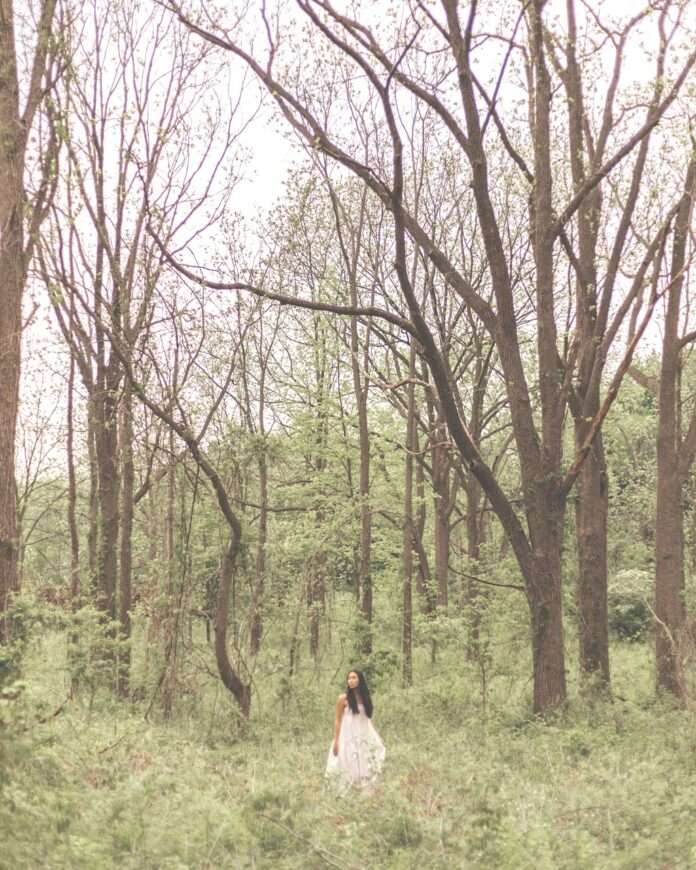Step away from your screen, unplug from the hustle and bustle of your everyday routine, and take a deep breath of fresh air by stepping out into nature.
Spending more time outdoors isn’t just a leisurely escape; it’s absolutely essential for your well-being. And as climate anxiety and mental health issues increase globally, doctors are being encouraged to give their patients annual free passes to national parks to enhance their physical and mental well-being.
Medical experts from around the world agree that mental health conditions are on the rise globally, with illnesses including major depressive disorder, PTSD, and anxiety showing significantly high numbers.
Multiple factors have been implicated, from the impact of the covid pandemic to social media and climate change all thought to play a role. And while a range of psychotherapies and medications are available to treat mental health conditions, some practitioners are looking to nature as a solution.
Nature prescriptions for well-being
Under a recent health initiative in Canada, doctors are prescribing free annual passes to national parks for patients in a bid to help their well-being.
Canadian doctors have already prescribed “nature therapy”, sometimes called forest bathing, to help tackle mental health issues including anxiety, depression, and insomnia.
Nature has a knack for healing; in fact, the simple act of being surrounded by natural landscapes can have profound effects on the way you feel. Studies have shown that spending time outdoors reduces stress levels and soothes anxiety. This in turn can boost physical health.
Engaging in outdoor activities like hiking, cycling, or even a leisurely stroll can boost your cardiovascular fitness, strengthen muscles and improve your immune system.

Under the scheme created by BC Parks Foundation medical-led organization PaRx, in partnership with Parks Canada, physicians can hand out 12-month passes granting patients free access to parks in British Columbia, Saskatchewan, Ontario, and Manitoba.
“We are very lucky in Canada to have a world of beautiful natural spaces at our doorstep to enjoy healthy outdoor activities,” Steven Guilbeault, minister of Environment and Climate Change, said in a statement announcing the initiative last year. “This exciting collaboration with PaRx is a breakthrough for how we treat mental and physical health challenges, and couldn’t come at a better time as we continue to grapple with the impacts of the COVID-19 pandemic on our daily lives.”
The program is based on, and supported by, a growing body of evidence showing how time in nature can have myriad positive impacts on health and wellbeing. According to PaRx, spending just two hours a week outside can improve heart health, boost energy levels, and even increase longevity. And when it comes to mental health benefits, PaRx lists reduced stress and anxiety.
“We do have a standard recommendation that you spend at least two hours in nature each week and at least 20 minutes each time to maximize those health benefits,” PaRx director and family physician Dr. Melissa Lem told CNN last year. “There’s almost no condition that nature isn’t good for, from diabetes to high blood pressure. ADHD in children, anxiety and depression.”
Eco-therapy
This type of treatment broadly falls under the umbrella of ‘eco-therapy’, which mental health charity Mind describes as “a formal type of therapeutic treatment which involves doing outdoor activities in nature.” It can take place in both rural and urban settings, including parks, gardens, farms, and woodlands and can involve non-profit work such as tree planting.

Mind adds that there isn’t one single definition of eco-therapy, but that it is “often used to describe a regular, structured activity” that fits a number of criteria, including taking place in a green environment, being led by trained professionals, and exploring and appreciating the natural world.
Speaking about the initiative in an email to NPR, Prama Rahman, a coordinator for the BC Parks Foundation’s Healthy By Nature Program, said: “Given the growing body of evidence that indicates nature time can improve all kinds of different physical and mental health conditions, we’re hoping that our PaRx program not only improves patient health, but reduces costs to the healthcare system, and helps to grow the number of people who are more engaged environmental advocates.”
This type of nature exposure can encourage increased individual drive to protect the planet, says a 2021 study.
These efforts are also particularly important for children. “Young people who spend time in nature are smarter, happier, calmer, healthier, and less anxious than those who spend most of their time indoors,” says Psychology Today. “They’re more confident, more resilient, more curious, and more creative. They’re better at problem-solving, critical thinking, and leadership.”
Easy green tweaks
PaRx suggests it’s not essential to be part of the scheme to engage with nature in a way that could benefit your mental health. The organization has shared several ‘easy green tweaks’ people can add to their day.

Among them are booking a lunchtime walk in the park with a coworker, exercising outside instead of inside the gym, and opting for an active commute to work — preferably along a greenway.
Invest in good quality clothing so that you’re not put off getting outside when it’s raining. Check out fieldmag.com’s review of the best anorak jackets, purchase some waterproof boots and some good quality gloves, and a scarf for cold weather adventures. Find hobbies and things you enjoy doing outside like hiking or sports, and look at events and fun things you can do on your days off that get you out and about more.
Speaking to The Times in support of the scheme, Steven Guilbeault, Canada’s environment minister said medical research “clearly shows” the positive health benefits of connecting with nature.
“I am confident this programme will quickly show its enormous value to the well-being of patients as it continues to expand throughout the country.”
Related on Ethos:


